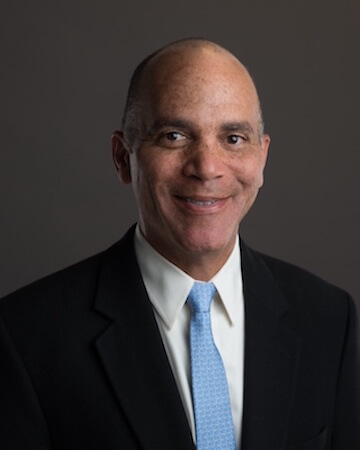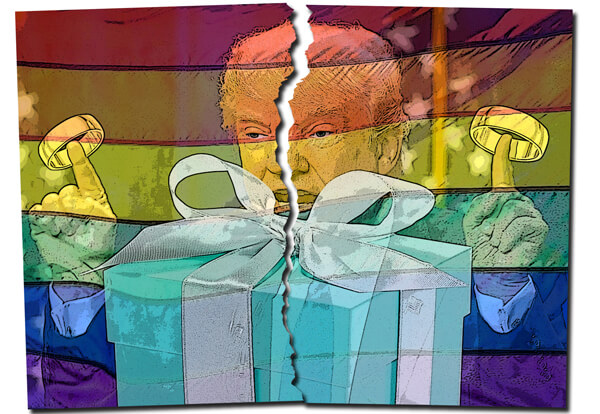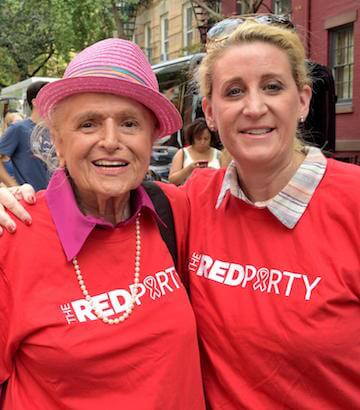The Supreme Court, on June 20, ruled that a federal statute that conditions government funding to non-profits doing overseas HIV prevention work on their articulating an explicit policy opposing prostitution violates the First Amendment.
Writing for the 6-2 majority, Chief Justice John R. Roberts, Jr., quoted from the high court’s famous 1943 Flag Salute case, which stated, “If there is any fixed star in our constitutional constellation, it is that no official, high or petty, can prescribe what shall be orthodox in politics, nationalism, religion, or other matters of opinion or force citizens to confess by word or act their faith therein.”
First Amendment flaw found in condition 2003 overseas AIDS funding law imposes
Both Alliance for Open Society International and Pathfinder International received US government funds to support their HIV prevention work in East Africa and Asia. A provision of the 2003 United States Leadership Against HIV/ AIDS, Tuberculosis, and Malaria Act, which appropriates billions of dollars, provides that none of its funds “may be used to promote or advocate the legalization or practice of prostitution or sex trafficking” or be provided to any organization “that does not have a policy explicitly opposing prostitution and sex trafficking.”
Neither Alliance nor Pathfinder promotes or advocates legalization of prostitution, but both organizations believe that adopting a policy “explicitly opposing prostitution and sex trafficking” would create difficulties in their work with some governments and other non-profits in Africa and Asia.
In fact, Congress itself acknowledged this difficulty while crafting the 2003 law, exempting key international players — including the Global Fund to Fight AIDS, Tuberculosis and Malaria, the World Health Organization, the International AIDS Vaccine Initiative, and all United Nations agencies — from the requirement that they explicitly disavow prostitution.
Many organizations that fight AIDS actively advocate the decriminalization of prostitution as a means of enlisting sex workers in the effort to promote safe sex. The active engagement of prostitutes in prevention efforts is widely viewed as critical to success in the battle against HIV transmission in many parts of the world. Mindful of that, Alliance and Pathfinder argued that it was improper for Congress to force them to stake out an anti-prostitution posture as a condition of their continued funding.
The two groups brought suit in the US District Court in New York and won a temporary injunction against suspension of their existing grants while the free speech issue was litigated.
Ultimately, both the district court here and the Second Circuit Court of Appeals agreed with them that the policy requirement was unconstitutional. The government appealed, noting that the DC Circuit Court of Appeals had upheld the requirement in a different case.
Justice Roberts acknowledged that “as a general matter, if a party objects to a condition on the receipt of federal funding, its recourse is to decline the funds,” even where the objection is that the “condition may affect the recipient’s exercise of its First Amendment rights.”
The court majority, however, saw this case as different. At issue, it found, was not whether the government was required to fund speech it disagrees with, but whether it could use funding as a tool to compel speech on the part of its recipients.
Writing in dissent, Justice Antonin Scalia, joined by Clarence Thomas, argued that because Congress aimed to discourage prostitution as part of its strategy against HIV, limiting federal funding to those organizations in accord with the government’s policy preference about prostitution was a reasonable method of selecting recipients for support.
Roberts responded that “the relevant distinction that has emerged from our cases is between conditions that define the limits of the government spending program — those that specify the activities Congress wants to subsidize — and conditions that seek to leverage funding to regulate speech outside the contours of the program itself.”
Another way of putting that is that Congress can decide to withhold funding from organizations that espouse views with which it disagrees, but it is quite another thing for Congress to use its funding to require recipients to express the government’s views on those policies. So long as a recipient refrains from advocating for the policies condemned by Congress, the recipient’s continued receipt of the funds would be protected, the majority concluded.
The chief justice acknowledged that the line between permissible and impermissible speech-based conditions “is hardly clear,” but asserted that the requirement in this case clearly crosses the line.
“By demanding that funding recipients adopt — as their own — the Government’s view on an issue of public concern, the condition by its very nature affects ‘protected conduct outside the scope of the federally funded program,’” wrote Roberts, quoting an earlier ruling that upheld certain speech restrictions on recipients of federal family planning money.
In that case, Rust v. Sullivan, the court upheld Congress’ requirement that recipients of such funding not use the money in any program where abortion is a mechanism for family planning or abortion counseling or any referral to abortion providers is given. There, the court majority’s rationale was that Congress has a right to decide which speech it will fund, consistent with its public policy determinations.
The AIDS funding statute, however, requires funding recipients to affirmatively adopt as their own the policy dictated by Congress.
“By requiring recipients to profess a specific belief,” wrote Roberts, “the Policy Requirement goes beyond defining the limits of the federally funded program to defining the recipient.”
The government’s argument that recipients remain free to establish separate affiliated organizations — non-recipients of federal funds — that could advocate for legalizing prostitution was also rejected by Roberts.
“When we have noted the importance of affiliates in this context,” Roberts wrote, “it has been because they allow an organization bounded by a funding condition to exercise its First Amendment rights outside the scope of the federal program. Affiliates cannot serve that purpose when the condition is that a funding recipient espouse a specific belief as its own. If the affiliate is distinct from the recipient, the arrangement does not afford a means for the recipient to express its beliefs. If the affiliate is more clearly identified with the recipient, the recipient can express those beliefs only at the price of evident hypocrisy.”
The government had also argued that without a requirement that recipients of funding condemn prostitution, they would be free to apply funds received from elsewhere to counter Congress’ policy goals by advocating for decriminalization of prostitution. Roberts rejected that, noting there was no evidence that the plaintiffs have any intention of articulating any position on whether prostitution should be legal.
The chief justice observed that “the Policy Requirement goes beyond preventing recipients from using private funds in a way that would undermine the federal program. It requires them to pledge allegiance to the Government’s policy of eradicating prostitution.” Such a requirement “violates the First Amendment and cannot be sustained.”

































